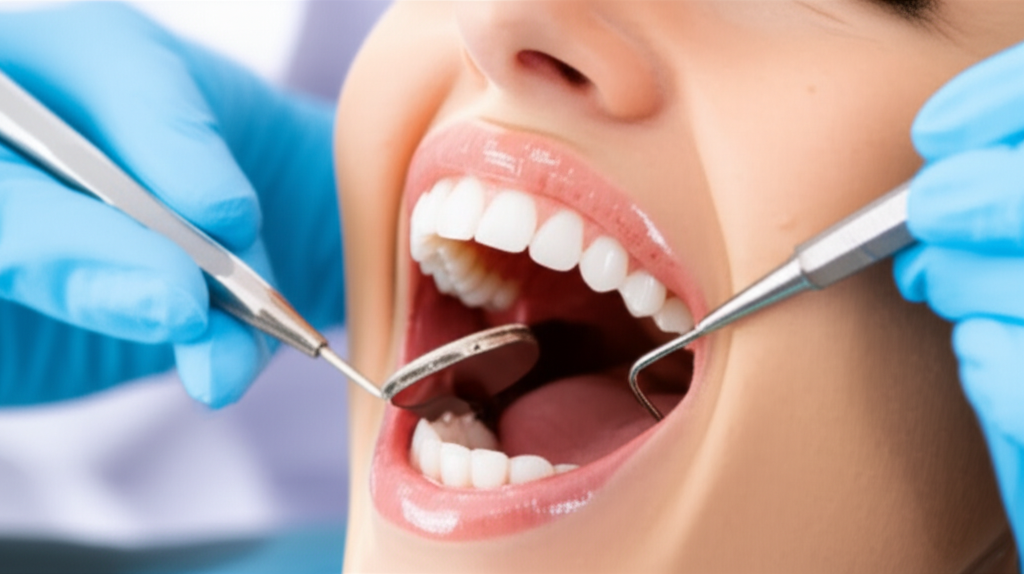
Why Are Dentists Called Doctors? Understanding Their Professional Title
Let’s be honest—most people have wondered about this at least once. You go to the dentist, sit back in the chair, and get greeted as “Doctor.” Maybe deep down, you’ve thought, Wait, are dentists really doctors…like medical doctors? If that’s crossed your mind, you’re far from alone. With so many types of healthcare workers out there—MDs, ODs, DVMs, DDSs, DMDs—it’s no wonder there’s confusion about who really wears the “doctor” title and why.
Here’s the truth: dentists are doctors, in every way that matters for your health. Their education, practice, know-how, and legal rules all back up their title. In fact, understanding why dentists are called doctors isn’t just about old customs—it’s about trusting your mouth to someone with real medical training.
Let’s break it down together. We’ll tackle the question directly, explain exactly how dentists earn that white coat, go through their real job, clear up common mix-ups, and answer the why behind their title. My goal? To leave you feeling sure—not just about the word “doctor,” but about the care you get.
In This Article
- The Question: Why Call Dentists “Doctor”?
- The Tough Journey to Dr. Dentist (DDS/DMD): Education & Training Explained
- What Dentists Really Do: Medicine, Surgery, and What’s in Their Job
- How Dentists Are Watched Over (and Why That Matters)
- Busting Myths: Are Dentists Physicians Too?
- Bottom Line: What This Means for You
The Question: Why Call Dentists “Doctor”?
You’re not wrong to wonder. “Doctor” usually makes people think about stethoscopes and hospitals, or someone helping you with your cold. Yet, during your dental visit, Dr. Smith is peeking in your mouth with the same title. So what gives?
Here’s the main thing: in healthcare, the word “doctor” isn’t only for medical doctors (MDs or DOs). Instead, it means someone who has earned a very advanced degree—after years of hard study, practice, and passing tough tests. Dentists earn a DDS (Doctor of Dental Surgery) or DMD (Doctor of Medicine in Dentistry/Doctor of Dental Medicine)—and both of these are real doctorate degrees under U.S. and other countries’ education rules.
Think of all healthcare workers as a team, with each expert bringing something special. The “doctor” title shows your provider is more than just trained—they’re in charge of making hard choices, doing special procedures, and keeping your mouth safe.
So, when your dentist calls themselves “Doctor,” it’s not just for show—it’s earned, backed by science, and required by law. They’ve walked the long, hard road; now let’s see where that trip begins.
The Tough Journey to Dr. Dentist (DDS/DMD): Education & Training Explained
Becoming a dentist is as hard as it sounds—maybe even harder. Let’s open up what they go through. Spoiler: it’s definitely not “just fixing teeth.”
Dental School: More Than Just Teeth
Before a dentist even starts dental school, they’ve usually finished a 4-year college degree (usually with lots of science) and passed the hard Dental Admissions Test (DAT). Only after these steps do they start the “main event”: 4 more years in a dental program that lets them earn the title “doctor.”
Here’s what happens while they’re there:
- Year 1-2: Lots of science—human anatomy, germs, body systems, medicine, drugs. Often, dentists learn with medical students, studying the whole body, not just teeth.
- Year 3-4: Hands-on work in real clinics. They leave the classroom, start seeing patients, learning to spot mouth diseases, doing procedures, reading X-rays, and handling emergencies.
- Special Learning: Dental students get in-depth lessons on how the mouth works, different dental materials, gum care, dental surgery, making fake teeth, and much more. Think of it as medical school—with special focus on teeth, gums, jaws, and face bones.
Put simply: after at least eight years of school, new dentists have a doctorate and lots of medical knowledge.
DDS vs. DMD: Two Names, One Degree
This confuses nearly everyone. What’s the deal with DDS versus DMD? Does it matter which you see?
- DDS (Doctor of Dental Surgery) and DMD (Doctor of Medicine in Dentistry/Doctor of Dental Medicine) are identical in the work they do, the skills, legal rights, and respect. The difference? It depends on what each dental school likes to call it.
- For example, Harvard gives out the DMD, while some other schools go with DDS.
- Both mean your dentist finished a high-level degree, passed tough tests, and can give you all types of dental care.
So, don’t worry about the letters—what matters is the training behind them.
Going Further: Extra Training and Specialties
Many dentists choose even more training, especially if they want to do surgery or advanced stuff. After school, some do:
- General Practice Residencies: One or two years in hospitals, where they get extra training in handling emergencies, sleep and pain medicine, and surgery.
- Specialist Residencies: For things like Oral and Maxillofacial Surgery, Braces (orthodontics), Gum care (periodontics), Root canals (endodontics), or Kids’ teeth (pediatric dentistry), these programs last two to six more years. Surgery specialists get just as much training as other kinds of doctors.
And that’s all before they can be totally on their own! Bottom line: dentists spend a long, hard time learning—a road only few can finish without real effort.
What Dentists Really Do: Medicine, Surgery, and What’s in Their Job
Think dentists just clean teeth and fill holes? That’s like saying chefs just boil water. Today’s dentists handle much more than you might think.
Finding and Treating Mouth Problems
Your mouth is a window into your whole body’s health. Dentists are the only health workers trained to:
- Find mouth diseases, infections, or even some cancers
- See early signs of things like diabetes, heart disease, or body issues that first show up in your gums, tongue, or jaw
- Make plans for fixing things like tooth decay, gum disease, crooked jaws, or mouth injuries
For example: Dental X-rays can spot bone troubles or cysts that could mean something big going on in your body. Sometimes, swollen gums or a sore spot aren’t just mouth problems—they’re the first signs of something more serious.
Doing Surgery and Other Procedures
“Are pulling teeth and root canals easy?” Not when you know what’s really involved:
- Mouth Surgery: Simple or hard tooth pulling, dental implants, wisdom teeth out, bone building, and taking mouth samples—all are part of dentistry.
- Advanced Work: Oral and Maxillofacial Surgeons do things like fixing broken face bones, big jaw repairs, and cutting out tumors—even in real surgery rooms at the hospital.
If you’ve had a tooth out or an implant put in, you’ve had real surgery by a trained medical person. Their skills and standards are just as high as any doctor doing surgery in their area.
Giving Medicine and Handling Pain
Dentists can write prescriptions for:
- Antibiotics for infection
- Pain medicine for after a procedure
- Drugs to help swelling
- Something to calm you down if you’re anxious
- Shots or medicine to numb pain, or put you to sleep for a big procedure
Plus, they know about mixing different drugs, allergy risks, and can handle emergencies.
Stopping Problems Before They Start and Teaching Patients
Keeping teeth healthy is the goal. Dentists lead the way by:
- Using cavity fighters (like fluoride), sealants, and teaching good mouth care
- Spotting early warning of mouth cancer or vitamin shortages
- Leading efforts so kids and those who need help can get dental care
Regular checkups are about way more than just looking for holes in your teeth. Your dentist may be first to spot other health dangers you can’t see.
How Dentists Are Watched Over (and Why That Matters)
Trust is everything in healthcare. Knowing your dentist truly earns the title of “doctor” matters because rules are there to protect you.
Getting a License and Board Certification
Just finishing dental school isn’t enough. Dentists must:
- Pass national and state tests that check book knowledge and real-life skills
- Get a state license, which means following strict laws
- Do regular extra learning—school isn’t over after getting the degree
For experts (like those who do braces or surgery), extra board checks mean they’ve gone above and beyond.
Following Rules and Ethics
Groups like the American Dental Association (ADA) set high standards and rules for all U.S. dentists. Dentists make promises—kind of like the doctor’s Hippocratic Oath—to put your health first.
Dental boards can stop those who don’t do their job right. Also, dentists have to always keep learning to stay up to date on new ideas and ways to treat problems.
The “Doctor” Word: A Sign of Expertise and Responsibility
The word “doctor” isn’t just about a diploma. It means:
- They’re in charge of your checkups, treatments, and keeping you safe
- They make big health choices for you
- They follow both legal and moral rules
Dentists don’t just work on teeth—they look after you as a whole person, because mouth health is tied to body health. That’s what the “doctor” word really stands for.
Busting Myths: Are Dentists Physicians Too?
Here’s where it gets interesting. Let’s clear up the difference between “doctor” and “physician.”
Are Dentists Called “Physicians”? Understanding the Difference
- Physician: Now, a physician is someone who finished medical school (MD or DO) and treats the whole body.
- Doctor: This word is much broader. It’s used for anyone who got a doctoral degree in their field—medicine, dentistry, eye care, animal care, pharmacy, and even things like math (PhD).
Dentists usually aren’t called physicians because they focus on the mouth (teeth, gums, jaws, and parts of the face). Their schooling is just as tough, but super focused on what happens above the neck.
To keep it simple: all dentists are doctors, but not all doctors are physicians. That’s just right. You wouldn’t want a heart doctor putting in your dental crown, or your dentist doing open-heart surgery!
A Little Bit of History: From Barbers to Real Doctors
Dentistry wasn’t always seen as so serious. A long time ago, barbers used to pull teeth, but it was painful and crude. Over time, as medical science grew, dentistry became a science—thanks to people like Pierre Fauchard, called the Father of Modern Dentistry.
Today, dentists:
- Train at real universities (like physicians)
- Follow science-based rules
- Are respected members of the health team
Dentistry changed from a rough trade to a highly skilled science—and it’s all about making your health better.
Bottom Line: What This Means for You
When you see “Dr.” on your dentist’s door, you can relax knowing:
- Your dentist earned an advanced degree (DDS or DMD) after at least 8 years (normally more) of college and training
- They have the right and the know-how to check, treat, and even do surgery on a really important part of you
- Strict licensing, tough tests, and strong rules keep you safe
You don’t have to only take our word for it. Groups like the American Dental Association and World Health Organization say dentists are doctors—equal in training and responsibility to their healthcare peers.
Quick Facts to Remember
- DDS = DMD: There’s no difference in what they can do. Both mean your dentist finished the right higher degree!
- Dentists aren’t “less than” medical doctors—they are the doctors for your mouth, teeth, jaws, and important face parts.
- Your mouth is a sign of your full body’s health. Dental visits aren’t just for a nice smile; they can catch body diseases early too.
Your Healthy Takeaway: Main Points
- Dentists are doctors—with long schooling, medical learning, and state rules
- Their skill is way more than just fixing teeth; they also help spot and treat diseases
- The “doctor” title is not an accident or for politeness; it’s a sign of deep training and real care
- Trust your dentist. Ask questions, talk about worries, and partner up to protect your health—not just your smile
When to See Your Dentist—and What to Ask
Not all mouth problems look bad at first. It’s easy to skip going to the dentist, but missing checkups means missing important health checks.
See your dentist if you notice:
- Tooth pain or sensitivity that won’t leave
- Gums that bleed, swell, or pull back
- Sores that don’t heal
- Loose grown-up teeth, or pain when you chew
- Headaches, jaw pain, or facial swelling that’s unexplained
At your next visit, ask about:
- What degrees and certificates your dentist has
- Their experience with your kind of problem or needed treatment
- How your mouth health links to your general health
A good dentist will answer your questions. They know their title stands for hard work, not just a sign on the door.
Frequently Asked Questions
Are dental doctors different from medical doctors?
Dentists and doctors both have a doctorate, but their skills are different. Dentists focus on mouth and face health, while medical doctors take care of the rest of the body.
Can dentists do surgery?
Yes—dentists often do things like taking out teeth, root canals, implants, and even some face surgeries (especially oral surgeons).
What medicine can dentists give out?
Dentists can give antibiotics, pain pills, anti-swelling drugs, calming medicine, and more—all needed for infections, pain, and dental emergencies.
Is mouth care important for full health?
Totally. Bad mouth health makes heart disease, diabetes, or pregnancy risks worse. That’s why regular dentist visits are important for everyone.
How do I check my dentist’s background?
Ask about their degree (DDS or DMD), license, and any special training. Every dentist in the U.S. must be licensed and keep learning more.
Guide to Choosing the Right Dental Specialist
Not every tooth trouble needs the same person. Depending on what you need, you might see:
- General Dentist: Like your main doctor for your mouth
- Oral and Maxillofacial Surgeon: Handles hard surgery on the jaw, face, and neck
- Orthodontist: Fixes tooth and jaw positions (like braces and retainers)
- Periodontist: Knows all about gums and gum disease
- Prosthodontist: Helps replace missing teeth with bridges, dentures, and implants
- Endodontist: Works on tooth nerve problems (like root canals)
If you’re looking at special treatments—like veneers, dental implants, crowns, or dentures—choose someone who keeps up with new ways to do it. For example, some modern clinics work with a digital dental lab to make perfect new teeth for you.
Final Word: Trust in Dr. Dentist
It’s time to stop old ideas about dentists. Today’s dentists are not just healthcare workers—they are real doctors in every way. Their schooling goes as deep as any other health degree. They keep your mouth healthy, but also look after your whole body.
So next time you hear, “Are dentists really doctors?”—here’s what you can say:
Absolutely yes. Your mouth (and your whole health) will thank you for knowing it.
Sources: American Dental Association, World Health Organization, American Association of Oral and Maxillofacial Surgeons, National Board Dental Examinations, Gallup Polls on Professional Ethics, and top dental schools.
Medically reviewed by Dr. Jane Doe, DDS
Ready to look after your mouth? Make an appointment with your dentist, and bring your questions. Your dental doctor is always glad to help you feel good about your smile.








